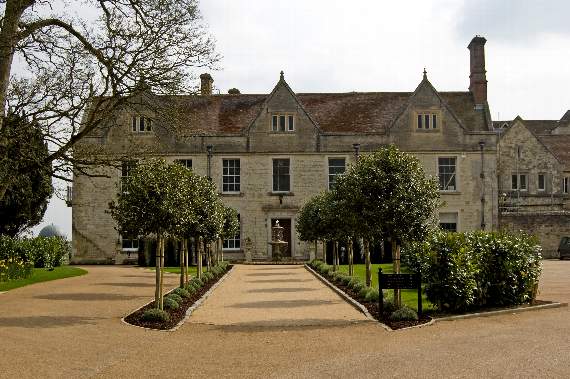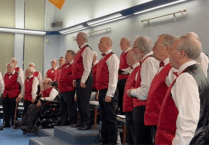THE aptly-dubbed ‘Froyle’s War’ has been re-ignited this month as villagers prepare to fight the next round of applications by Froyle Park Ltd for a new car park and variation in noise conditions.
Leading the charge, Froyle Parish Council argues that both applications are “predicated and entirely contingent” on the present use of the 17th century Jacobean manor house as a legitimate wedding venue which, having sought legal advice, it now “fundamentally contests”.
By contrast, acting on behalf of Froyle Park Ltd (part of the Nicholas James Group), David Jobbins, of Southampton-based agents Luken Beck, says that as an experienced chartered town planner he believes Froyle Park Ltd is “acting entirely within the terms of the planning agreement”.
The two applications, due to come before East Hampshire District Council’s (EHDC) planning committee on Thursday, are for the construction of a 62-space, on-site car park which, according to Mr Jobbins, will replace the existing overspill site, and a variation in condition to low-frequency music levels which has changed with the construction of nearby housing.
The new car parking facility, he argues, will do away with guests having to walk along the village lane to access their vehicles, which has at times resulted in noise and disruption to residents, and will consolidate parking next to the venue.
The parish council argues that the provision of yet more parking will have a negative impact on what is “the most sensitive site in the Upper Froyle conservation area”.
Councillors believe it will “interfere with distant views of Froyle Park (Grade II) and St Mary’s Church (Grade I). The impact on the church would be particularly significant during the winter. Reflections from the parked cars will be seen right across the Wey valley.”
They further point out that the proposed car park is located in parkland outside the settlement policy boundary for the village where development would not normally be permitted, and that it will lie close to the memorial garden for children of Treloar School who died while still pupils.
In stressing the need for the garden to remain as a place of “peace and tranquility”, the parish council objection continues: “It is difficult to see how a memorial garden for dead children can share the same access as that for wedding guests who to date have shown the area little respect.”
There is concern too over access which, according to the parish council, looks from the plans to be via the main gate onto Ryebridge Lane. But this would conflict with an undertaking received from the management of Froyle Park that after 9pm access and egress will be via The Avenue and Gid Lane.
Neither option is ideal – if access is to be via the main gates then the disruption to residents in Upper Froyle will be even greater than previously.
However, from the outset Froyle Parish Council has resisted any suggestion that access to the site should be via The Avenue and (single track) Gid Lane, partly in a bid “to preserve the peace and tranquillity of the parkland” but mainly because of “the danger of the Gid Lane/A31 junction”.
It is pointed out that “very few villagers use this junction because of the poor visibility and the speed of oncoming traffic”. Furthermore, “proposals to improve the junction are unlikely to get support from Hampshire Highways”.
Of the application to review the condition concerning noise levels from the venue, the parish council fears they will result in an increase in permitted noise levels that will be more clearly heard by neighbouring residents.
Mr Jobbins claims the changes have been brought about following the building of homes close to the venue which, following extensive noise testing, have resulted in a request by EHDC’s environmental health team for amendments.
“And we have complied with everything we have been asked to do,” he said.
Residents argue that the existing overflow car park on Hen and Chicken Hill is not being used for parking, and that it should be.
Furthermore, the developers knew the capacity of their function rooms from the start, said Mr Jobbins, but chose to not retain enough land to provide sufficient parking.
“The parkland setting should not be sacrificed because of this,” he said.
But Froyle Parish Council has a more deadly weapon up its sleeve. In response to complaints raised by residents of disturbance caused as a direct result of Froyle Park being used as a wedding venue, the parish council has sought legal advice from leading planning counsel James Findlay concerning the validity of this use.
As a result, it is urging EHDC to put a stop to the determination of any future planning applications until such time as this claim has been reviewed. And it is requesting consequential enforcement action against Nicholas James Group to cease using Froyle Park as a wedding venue as its principal use.




